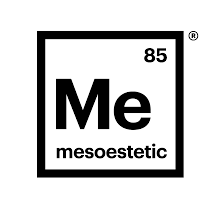For over 5 years, the Expert Working Group on Cosmetic Surgery has been recommending to the Healthcare Commission that Botox use be more closely monitored. As Botox procedures become increasingly popular, greater numbers of patients are exposed to health risks by accepting shoddy, low-cost treatments from fly-by-night operations that don’t care what happens once the money is in their pockets and patient is out the door.
The government doesn’t accept that patient risk should be any of their concern. They have continued to decline the recommendation and instead ask cosmetic surgeons to regulate themselves. Under the current system, absolutely anyone can set up an office and administer the injections of Botox. Botox is a diluted form of deadly toxin produced by botulism-causing bacteria. The toxin tightens muscles under the face, paralyzing them. This has the side effect of reducing wrinkles.
Dr. Andrew Vallance-Owen, chairman of the Independent Healthcare Advisory Services’ Wirjung Group on Cosmetic Surgery and medical director of BUPA confirmed that cosmetic surgeons urged Parliament to bring regulation to the Botox industry.
Vallence-Owen stressed the importance of regulation. “We are talking about invasive procedures,” he said. “Botox is a prescription-only medicine and patient safety should be paramount.” He continued, “If things go wrong, some patients could be left scarred physically or psychologically for life.”
Vallence-Owen, for one, isn’t going to step back and let the procedure go unregulated. “Self-reulation is better than no regulation,” he said. “If we want the sector to maintain its success, we must retain patient confidence.” He maintains that if the industry doesn’t step up, then “these procedures will be less-regulated than ear-piercing.”
Health Minister Lord Hunt announced the UK plan for self-regulation of the Botox industry. “Cosmetic surgery providers have shown real commitment to improving levels of quality and safety in this area, and so, I have decided to ask the industry to take the lead in further improving standards.” Lord Hunt admits that the most the British government intends to do is keep open the possibility introducing “statutory regulation should it become necessary in the future.”
The Independent Healthcare Advisory Services have been given the responsibility in producing a set of standards for the industry. Sally Taber, speaking for the group, said they were ready for the task, but not willing, as nothing they could do compares to statutory regulation.
Jenny Driscoll, a health campaigner, concurs with the popular sentiment. “The government needs to step in now because, left to regulate itself, it’d be all too easy for the industry to focus on introducing multiple codes that will just end up confusing people.”
President of the British Association of Aesthetic Plastic Surgeons, when asked for a statement, said that the self-regulation mandate was “total nonsense.”









